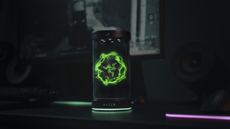Tech
The latest Tech breaking news, comment, reviews and features from the experts at T3
Explore Tech
-

I tried Motorola's Razr Fold months before release – Samsung has new competition
The folding phones race continues, as Motorola gets in on the action
By Mike Lowe Published
-

CES 2026 live – the latest TV and tech news from Samsung, LG, Hue, IKEA and more
T3 is covering CES 2026 live from the ground in Las Vegas
By Mike Lowe Last updated
-

Asus upgrades its dual-screen laptop with a new hinge and performance boost
The latest Zenbook DUO takes a literal bow with its fancy new hinge
By Luke Edwards Published
-

Forget your MacBook – Asus' refreshed Zenbook A14 might be an ideal alternative
Now powered by the Snapdragon X2 Elite
By Max Freeman-Mills Published
-

When smart tech and beauty collide – InkPoster has truly outdone itself this time
The InkPoster Duna combines ePaper convenience with Pininfarina design expertise
By Rik Henderson Published
-

These crazy new headphones turn into a wireless speaker – and cost less than you might think
The TDM Neo makes a lot of sense for cash-strapped music lovers
By Sam Cross Published
-

Android-powered and audiophile-standard, FiiO's latest music player is an iPod for a new generation
The M33 R2R is the premium audio player I've been waiting for
By Luke Edwards Published
-

Welcome to the future – Razer creates its own AI-powered, holographic Echo for gamers
Project AVA just got a massive AI upgrade to become a physical desktop companion
By Luke Edwards Published
-

I tried Cambridge's new L/R X speaker, now my Bowers is on borrowed time
Cambridge's L/R X is an absolutely storming integrated speaker setup
By Mike Lowe Published
-

New Audio-Technica turntable is an exercise in timeless minimalism
The Audio-Technica AT-LP7X offers killer specs in a gorgeous package
By Sam Cross Published
-

WD_Black is dead but the "best PS5 SSD" on the planet lives on
The best gaming storage brand has been shut down
By Rik Henderson Published
-

XGIMI’s latest premium projector could give Hisense a headache
XGIMI's Titan Noir Max promises exceptional contrast, brightness and stability
By Carrie Marshall Published
-

Yep, your Hisense TV is now an Xbox too
Cloud gaming is coming to Hisense TVs and it's bringing flagship Xbox games
By Luke Edwards Published
-

Solos launches AirGo V2 smart glasses with upgraded 16MP camera, live video and multimodal AI
This $299 face wearable lets you ask questions about what you’re looking at, translate text and identify objects without pulling out your phone
By Lee Bell Published
-

British audio legend reveals Sonos-slapping colourful new speaker range
Cambridge Audio's L/R – available in 'S', 'M' and 'X' – is a very compelling new powered speaker line-up
By Mike Lowe Published
-

Your Amazon Fire TV Stick is getting its most important upgrade in half a decade
Why should Google TV users have all the fun?
By Rik Henderson Published
-

Intel's new chips show that gaming laptops' days might be numbered
Integrated graphics are becoming unrecognisably impressive
By Max Freeman-Mills Published
-

HP's keyboard computer is the maddest thing at CES, and I've used it
The EliteBoard G1a could be huge
By Max Freeman-Mills Published
-

I need to try Asus' new double-screen gaming laptop – the design finally now makes sense
The ROG Zephyrus Duo is a lightbulb moment
By Max Freeman-Mills Published
-

Intel’s newest Panther Lake chips are official – but what does that actually mean for 2026 laptops?
Panther Lake slinks into view
By Max Freeman-Mills Published
-

Asus ROG put a flipping hologram on the side of its beefiest gaming PC – and it looks bananas
The ROG G1000 won't be stealthy
By Max Freeman-Mills Published
-

HP is changing everything about how it sells its gaming gear, and I think it might be a mistake
HyperX is the captain, now
By Max Freeman-Mills Published
-

MSI's gaming laptop redesigns are completely game-changing this CES
These laptops are markedly nicer-looking
By Max Freeman-Mills Published
-

Acer's new laptop has a trackpad I wish my MacBook Air featured
The Swift 16 AI has the world's largest haptic trackpad – and fancy illuminated controls, too
By Mike Lowe Published
-

Dell is bringing back the XPS – and we couldn’t be happier
Hold the phone, Dell just simplified its confusing lineup with something we all asked for
By Mat Gallagher Published
-

Move over Amazon, new colour 'paper' tablet could be Kindle Colorsoft killer
TCL's Note A1 Nxtpaper tablet has a 16.7-million colour display – that's not E-Ink
By Mike Lowe Published
-

Forget Sony's latest TV tech, as Mini-LED with 'fourth dimension' revealed
Hisense RGB Mini-LED Evo tech adds a new Cyan LED
By Mike Lowe Published
-

Hisense just pulled off a world first in Micro-LED TVs
Hisense's four-colour Micro-LED architecture is the first of its kind
By Mike Lowe Published
-

Got 99 tech problems? Gadget guru is here to help you solve at least one… maybe (January edition)
T3’s top physicist waves his Geiger counter at your problems
By Alex Cox Published
